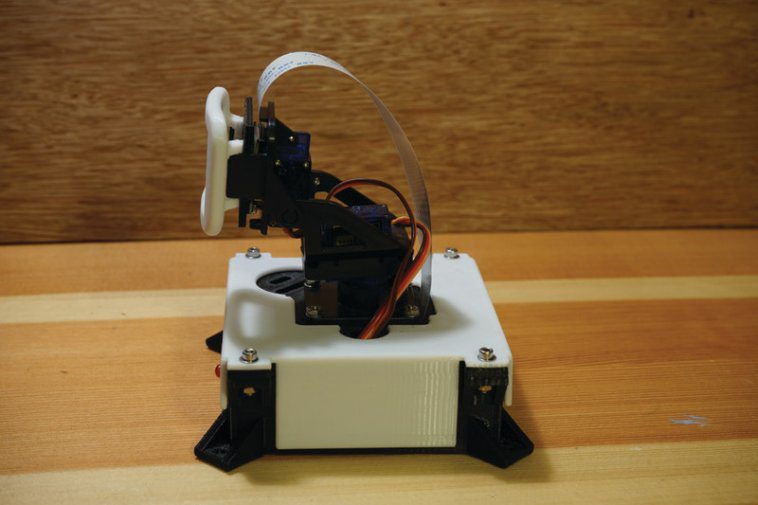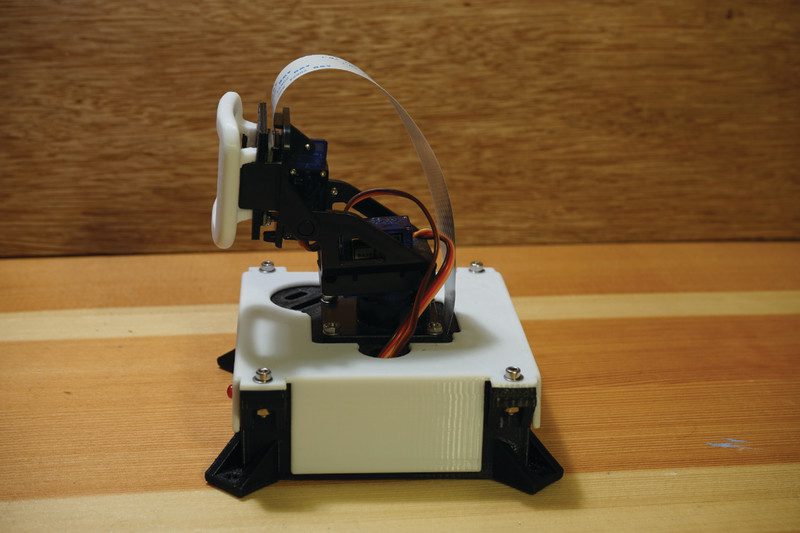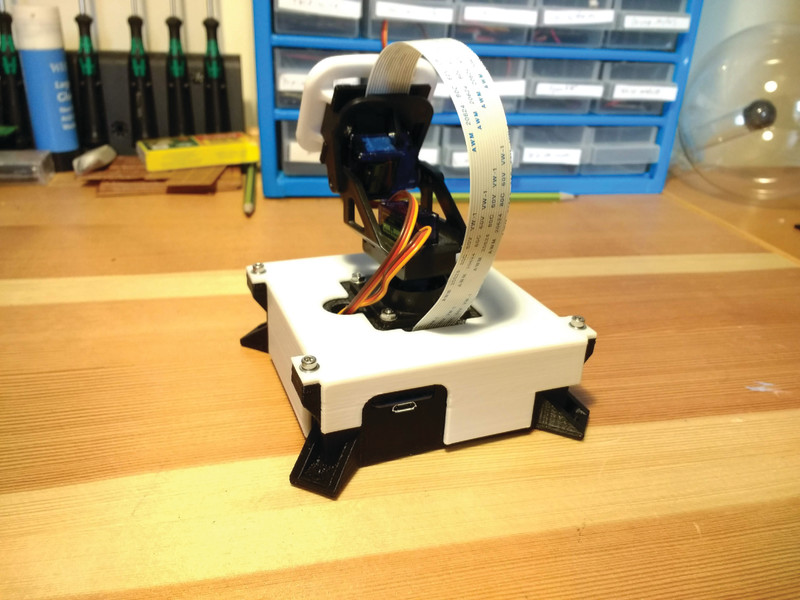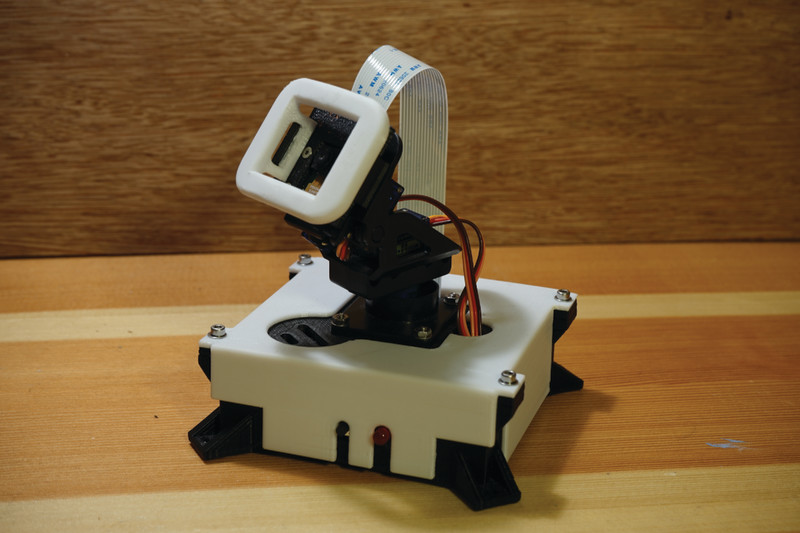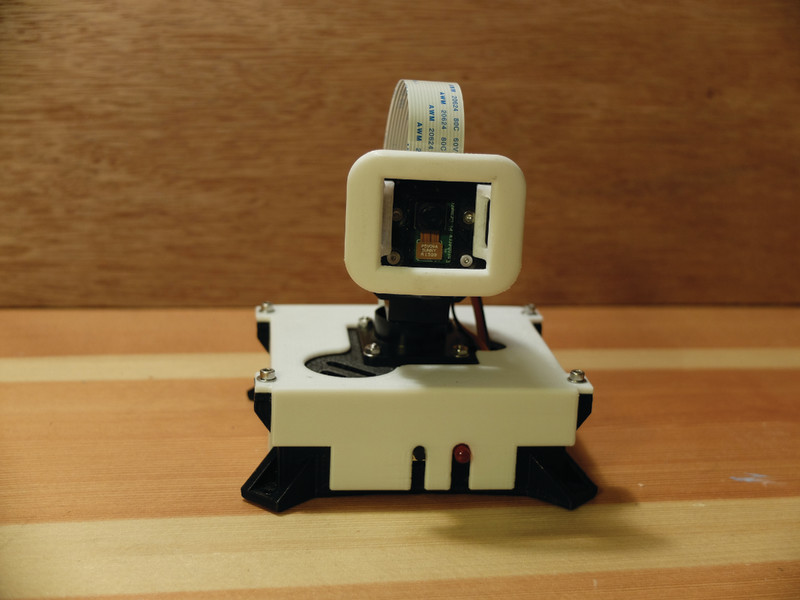“BB is a small, wall-powered robot designed to test out offline computer vision, detecting people and faces,” says Sean.
“It searches a room for people, then tries to recognise any faces if it detects a person. If it comes across a person in its memory, it will respond appropriately, e.g. ‘Hello Sean’, in a squeaky voice. It tracks any people it detects, following them around the room with its pan-tilt mounted camera.”
BB Robot: Quick Facts
BB has an 180-degree viewing angle
Like PiArm and other arm robots, BB cannot move around
There’s an inner case that holds all the electronics
Sean designed a relay circuit based on this one
The high-pitched voice is supposed to replicate the turrets from Portal
Seeing robot
Like a lot of Raspberry Pi robots, BB uses OpenCV. It’s a Python library that we’ve covered in the magazine before that allows people to add machine learning to image processing. Computer vision works fine on a Raspberry Pi – OpenCV has been used for the Formula Pi racing league, and face unlock Raspberry Pi tutorials have been around for as long as Raspberry Pi has.
See: Raspberry Pi face recognition
Sean tells us he has a lot of experience using a Raspberry Pi:
“I’ve found it a great platform for building robots with. It is more powerful than Arduino and other microcontrollers, yet smaller and cheaper than full desktops.”
A Raspberry Pi 3A+ is the main component, but extra circuitry is included. “A DIY power management circuit is used to turn Raspberry Pi on and off with a button, with a power indicator LED,” he explains. “An amplifier is included to power a small speaker, as well as connectors for the two servos. The camera is a standard Raspberry Pi [Camera Module], and the whole robot is held together with a black 3D-printed case, with a white shell to cover unsightly bolts.”
First steps
Creating BB was just the start of what Sean plans to do, with bigger and better robots already in development.
“I wanted to make a small 3D-printed robot, since I just acquired a 3D printer and wanted to make something cool,” he says. “I also wanted a platform to test offline computer vision on. My long-term goal is to create a Raspberry Pi-powered robot, capable of computer vision, speech recognition, and speech synthesis. I’ve already finished building my new platform to recognise speech… It is cube-shaped, with a similar colour scheme to BB. It features four microphones, as well as a speaker and LED ring. I’m hoping to combine the two robots to create a sophisticated machine, as if from a movie.”
We look forward to seeing this sophisticated machine in the future.

